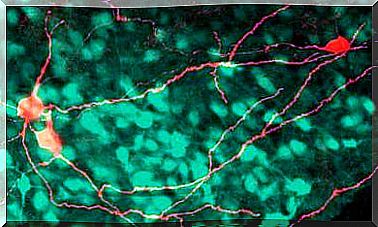8 Consequences Of Being Impatient

The positive attitude makes it easier for us to enjoy our day to day, with the consequences – such as better rest or establishing higher quality social relationships – that derive from it. On the opposite side, part of the stress or anxiety that threatens you in everyday life and increases the feeling of fatigue; the same that derives from those moments when you are very impatient.
If on any occasion you need a report at work that does not arrive on time or you have a friend who is late, really appreciate the importance of these events, do they objectively deserve the fact of awakening your most impatient “side”?
The psychological consequences of being impatient
First, we will analyze the psychological consequences of being impatient:
1. Any goal gets complicated
Being impatient will not bring you anything positive. The only thing you will achieve is to experience a feeling of frustration and helplessness, seeing that you cannot do anything to improve the course of events. Also, these sensations will only make your mood worse. Impatience feeds impatience itself.

2. It prevents us from enjoying what is happening now
It is important to enjoy every moment of life, as you will not return. In this sense, impatience will not allow us to live in the present, since we cannot avoid focusing all our attention on what is to come, but does not come.
3. Being impatient clouds our vision
Almost every situation has a silver lining. Therefore, if we feel in a traffic jam and cannot move forward, we can take the opportunity to listen to the radio, put on music or make that call that we had pending with the hands-free. This will keep us distracted and drive away that feeling that makes us so impatient: that of wasting time.
4. Our negative emotions are reinforced
Living impatiently will turn you into an anxious, stressed and anguished person who tends to always see the negative side of every situation. We must bear in mind that our way of being depends on our emotions, and the fact of being impatient will, in all probability, turn us into people with a negative attitude and who constantly complain.
5. Being impatient affects your emotional state
If we want to be balanced people who feel good about themselves, the best we can do is educate and educate ourselves on emotions. More than eliminating impatience, it is about that, when it appears, it does not end up clouding our ability to think and make judgments.
How being impatient can affect our health
In addition to the consequences that being impatient has on our emotional well-being, there may also be certain factors related to physical health.
6. Being impatient can lead to obesity
Impatient people may be more prone to obesity. This is because they are used to spending less time eating, and they eat in a more compulsive and less orderly way, consuming larger amounts of food in less time.
7. Onset of hypertension
On the other hand, a high number of people who are characterized as impatient have a higher risk of hypertension. This may be due to the increased stress they suffer during their day to day, compounded by feelings of overwhelm and helplessness due to their impatient and anxious nature.

8. Premature aging
Finally, impatience can also increase the rate at which we age. Similar to what happens with the risk of hypertension, the stress of impatience can cause signs of aging to appear at a younger age.
This behavior affects telomeres, which are structures that protect DNA from degradation. When telomeres disappear, DNA breaks down faster and signs of aging appear; it is precisely in impatient people that telomere structures are shorter and weaker.
Ultimately, patience in the face of impatience will allow us to enjoy more of what we already have. It will also allow us to find new ways to learn and enjoy in those moments when it seems that we can do nothing but wait. In addition, not being impatient will allow us to show ourselves as more confident people, with a more positive and pleasant attitude to any situation we face.









